Life
Sign up for our newsletter
We summarize the week's scientific breakthroughs every Thursday.
-
 Paleontology
PaleontologySuds versus nanoparticles and more reader feedback
Readers discuss the posture of an ancient reptile and why washing machines and nanoparticles don't mix.
-
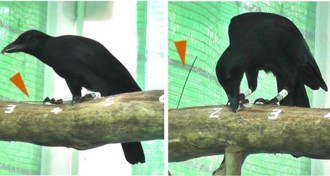 Animals
AnimalsCrows safeguard sticks to speed future food-finding forays
New Caledonian crows safeguard the sticks they use to find food. As the risk of losing the tool increases, the more protective the birds become.
-
 Animals
AnimalsPandas’ gut bacteria resemble carnivores’
Unlike other vegetarians, the bamboo eaters lack plant-digesting microbes.
By Meghan Rosen -
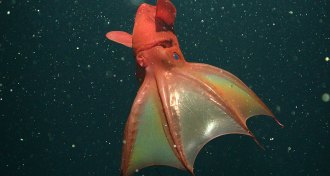 Animals
AnimalsVampire squid take mommy breaks
The vampire squid again defies its sensationalist name with a life in the slow lane.
By Susan Milius -
 Life
LifeTypical American diet can damage immune system
The typical American diet sends our good and bad gut microbes out of balance and can lead to inflammation and a host of problems.
By Laura Beil -
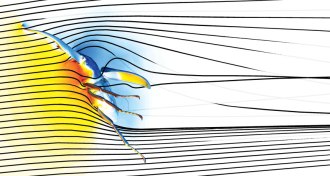 Life
LifeMale stag beetles face weighty problem for flight
Male stag beetles need enormous mandibles to fend off other males and find a mate, but computer simulations show that the giant jaws make running and flying very difficult.
By Susan Milius -
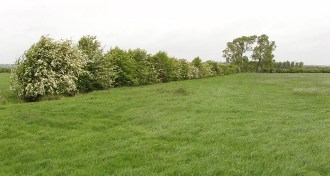 Plants
PlantsThe art and science of the hedgerow
Spiky hawthorn trees have found many uses despite their unforgiving nature, Bill Vaughn writes in ‘Hawthorn.’
By Nathan Seppa -
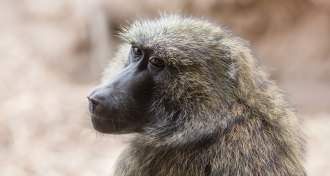 Psychology
PsychologyQuantity counts for baboons
Counting-like logic helps baboons track and compare accumulating sets of peanuts.
By Bruce Bower -
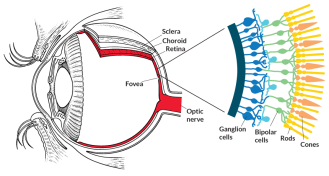 Genetics
GeneticsHow to rewire the eye
The cutting-edge technology called optogenetics may offer a workaround to partially restore vision even after the retina’s light-sensing rods and cones die.
-
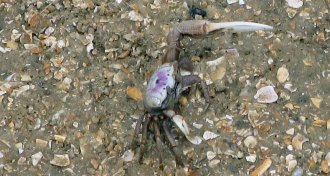 Animals
AnimalsA summer challenge: Observe nature
Opportunities for observing nature are plentiful, no matter where you live.
-
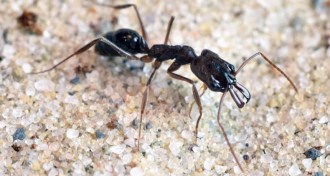 Animals
AnimalsAnts snap jaws, shoot skyward, escape death
Emergency trap jaw launchings help some ants pass death tests.
By Susan Milius -
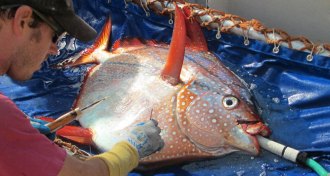 Animals
AnimalsDeepwater dweller is first known warm-hearted fish
The opah, a deep-diving fish, can keep much of its body warmer than its surroundings, making it similar to warm-blooded birds and mammals.
By Susan Milius